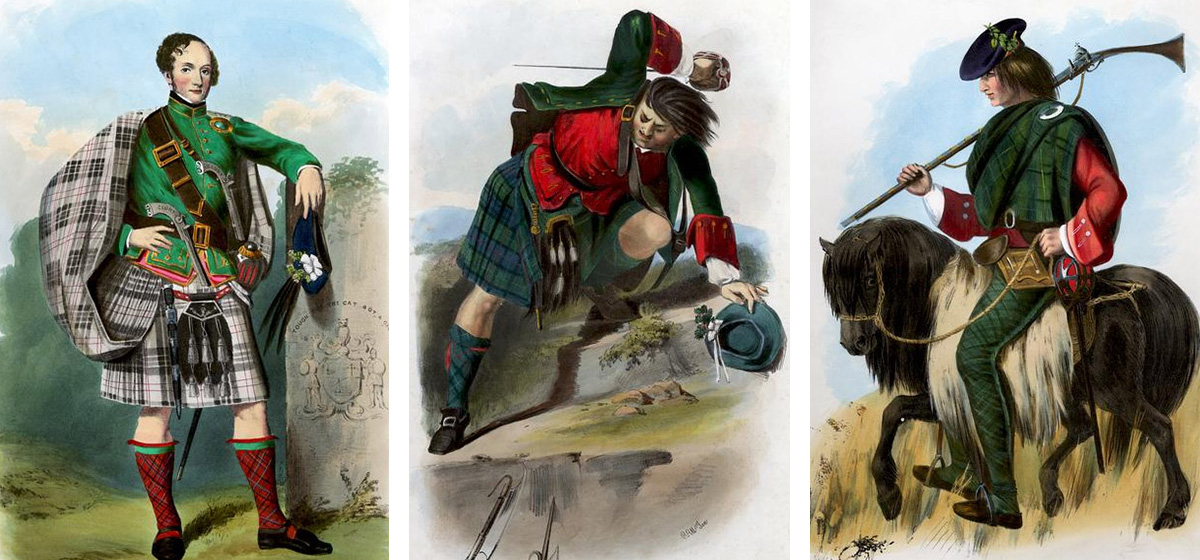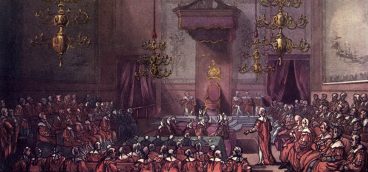What’s in a Name?

For as long as I can remember, my family has lamented the misspelling and mispronunciation of our last name, Macpherson. When I see relatives I’ve not seen for a long time, we tell stories of gross misspelling or mispronunciation.
The appended poem, written by my sister, provides clear instruction on pronunciation. My parents and siblings drilled the truth into me when I was a child, the lessons reinforced by our mailbox, which was full of misspellings—sins, I thought. My father’s face flashed with irritation when a salesperson or worse, close friend, just couldn’t get it right. There’s a right way and a wrong way. I know I’m not alone and sure many readers here can speak of even more difficult pronunciation and spelling challenges for their surname.
A few years ago, I looked carefully at my family tree and was startled to see “Mcpherson” rather than “Macpherson” listed five generations back. What?! A search through other sources showed the same misspelling. But what struck me more as I traced the tree’s branches was how little of me was “Macpherson.” At my parents’ level, only half of me was Macpherson—my mother’s maiden name was “Cooper.” And only half of her was “Cooper,” the other half being “Mendham.” Similarly, my father was half “Van Winkle” (some relatives spelling it “Van Winkel”). So from the time of my grandparents, only a fourth of me is Macpherson. From great grandparents, an eighth. And so on. If naming was perfectly egalitarian, I have an equal chance to be named seven names other than Macpherson from my great grandparents’ time. Looking retrospectively, who I am rapidly becomes less and less related to the name on my birth certificate. My bloodline—all of our bloodlines—are tremendously mixed. Like all of us, I fairly could be named almost anything.
What is going on here? English and European cultures for the most part use a patrilineal naming system, that is, the children of a marriage take the last name of their father. The tradition of women taking their husband’s name has gone on for a few hundred years and likely derives, in English cultures from the legal principle of coverture—the idea that upon marrying, a woman’s legal existence is suspended or incorporated into the husband. Fortunately, laws consistent with the coverture principle were overturned in the 19th and 20th centuries in the United States, though it took a long time and some laws persisted even to the 1970s in a few states.
In the late twentieth century, a growing number of women chose to keep their last name. My wife did. Before our marriage, a few friends asked me about her choice with a look of concern, as if the topic might be painful for me. It wasn’t. In fact, I was proud. The fact that the name my wife chose to keep was her father’s, not her mother’s, is at least a moderate sized elephant squatting in a corner of the room.
The main benefit of patrilineal naming is, I suppose, that the family unit (mothers, fathers, children) all have the same surname and therefore unifying. My children’s bonds to each other, to their different-named mother, and to me, never were a problem in my home. There are so many other things that link us—emphasis on our name seems trite. My daughter recently married a young man I like and admire very much but whose last name, Hrutkay, carries a similar, if not higher, burden of risk of misspelling and mispronunciation as my own. Before they were married, her fiancée told my daughter, my wife, and me that he would be comfortable with any decision she made about her last name. This marriage will last, I thought.
Other than the Smiths or the Jones, all of us perk up when we read our surname in print. Compared with my mother or grandmother’s maiden name, I’m much more likely to pick up a book or read an article listing my last name. To me, my surname from my father is special. My research into my heritage began with the Macpherson side and was extensive. But not as much into the Cooper side. I spent little time in the Mendham and Van Winkle quarters. So, my father’s line’s history and stories are carried on. Less so my mother’s. And even less my grandmothers’. When you think about it, my behavior was blatantly sexist.
You don’t have to go too far in the world to find fairer approaches. In Hispanic cultures, the children are named with both their mothers’ and fathers’ surnames, though the fathers’ name still predominates. Usually this only carries through one generation to avoid the problem an unwieldy mess of names for one person. And three percent of men in the USA, according to a study published in 2016, change their surname to their wives’ at the time of marriage.
Surnames haven’t been around forever. In Western European and English culture, use dates to the Middle Ages though the Chinese have used them for much longer. As populations grew larger and more mobile, a more unique identifier that first names was needed—discussing someone named “John” began to refer to more that one individual. Most surnames either linked the individual to a region, a trade, or a physical characteristic. My name, Macpherson, means son of parson though very few of my relatives have fathers (or mothers) who are men (or women) of the cloth. And, most Smiths don’t work at a job pounding hot metal, nor do Hills live on a slope. In a rigidly descriptive sense, most surnames become inaccurate very quickly.
But more important I think is how surnames might lead us to prejudge, to reveal our implicit biases. When we learn our child is going on a play date at their new friend’s home, do we jump to conclusions, some unfair, if their name is unusual in our culture? I suspect I would have done a little more checking when my son told me he wished to stay overnight at his friend’s house if his friend’s last name was Akinjide or Boottayothee versus McDonald. If we don’t know someone, we use their last name as one clue as to who they might be. Perhaps our preconceptions are less now than a few decades ago, given globalization and more widespread exposure to other cultures. But I’m sure it still goes on. The recent immigration controversy on our southern border clearly has fostered some abhorrent thinking or action toward specific people perhaps initiated by a Hispanic surname.
And as a nation’s population grew even larger, even an identical first and last name began referring to several people. So, governments created new systems to identify us, a unique number. In the United States, Social Security numbers are used. Numerous other systems serve a similar purpose around the world. Which brings me to an admittedly bizarre thought. What, if instead of surnames, we were identified only by our “number.” (We’d keep our first names.) It sounds cold and sterile, almost alien. But will some advanced form of life from another galaxy visit us one day and laugh (presuming the capacity for humor is truly universal) for holding on to a clunky naming system? It’s a crazy notion. But it does make me wonder.
A smaller, more practical step for improvement is for women to keep their surname when they marry, with female offspring of the couple taking the mother’s surname and male offspring, the father’s. With this approach, both surnames have an equal chance of being carried down. Other more egalitarian approaches include giving every other child the father, then mother’s surname, or flipping a fair coin to decide. All of these methods, while not widespread have been used by a small number of families.
Yes, brothers and sisters will have different last names with these systems. Given growing divorce rates and a remarriage rate of about 80 percent, multiple surnames in a family unit are common today. I very much doubt more than one surname in a family negatively influences sibling or child-parent relationships. Perhaps families who choose this naming system might have more challenges registering their children at school or camp, but I doubt this would lead to serious consequences. And a teacher who is unaware that a student in his classroom is the sibling of someone he taught in the past may help to avoid unconscious or conscious sibling prejudgment or comparisons.
My final suggestion for a different surname system is to rigidly follow our genes. From that perspective, we are most similar to our brothers and sisters, not our parents. The children of a couple likely carry the most similar genes to each other. Use of a hyphen to combine both parent surnames into a new surname seems short sighted because it rapidly becomes unwieldy after one generation. The alternative is to create a new surname for the offspring of a couple. Radical, I know, and unlikely to be adopted. But the new surname does express better the unique genetic combination created by the parents—a new name for a brand new combination, like a new name for a new color. This approach also is not without precedent in modern society, some couples choosing a portmanteau of their surnames to create something new.
I had my DNA analyzed recently. My genes were predominantly from Great Britain and northern Europe as I expected. I joined an online group of Macphersons (some spelled it McPherson) allowing us to compare our genes with each other to find remote cousins. I worried I would be contacted by a struggling fifth cousin. What are our obligations? Should we hug when we first meet them, assist them with money troubles, or help them in their home as they become frail?
These questions never arose in my case because the group’s leader discovered I didn’t belong with the Macphersons. My genes were much, much more aligned with another clan, the McKenzies. (Or was it Mackenzie?) Sometime long ago, somewhere, a liaison took place, which I imagine happened behind a hay bale in a creamy Scottish pasture under a pastel blue sky on a warm spring day. Or some Mackenzie changed his (probably not her) name to Macpherson because it was safer to swear allegiance to a different clan. Given the poverty and brutality of the Scottish Highlands in the past, a switch might have made great sense.
After pondering the questions around surnames, and wading admittedly into some fairly bizarre ideas, I’ve come to understand that it might be best simply to deemphasize our surnames. At my next reunion, I’ll be less likely to join in on the discussions of how to say and pronounce my surname. Women who choose to keep their birth name and those who choose to change their name to their husbands’ deserve no judgment by anyone. There are so many more important things. More and more I’ve come to understand our names emphasize our differences and hide who we are—better to focus on how much we are alike.
The Name is Everything
Mines as easy as yours. Three syllables.
First is Mac. Spread your mouth wide and thin
To say it. As succinct as a truck.
The second is fir, like the tree (sometimes of mountains),
Flat-needled, steeple-shaped, branches
Bent into indulgent smiles when it snows,
Dropping the snow in a dry shower
For little reasons: a light breeze, a touch.
The last is son, not daughter,
Or sun, our star, that melts the snow,
Sends it to a brook and down,
Away on a longer journey.
I wear it, a brand
That no one recognizes,
That everyone associates with something else.
Gwendolyn Macpherson





